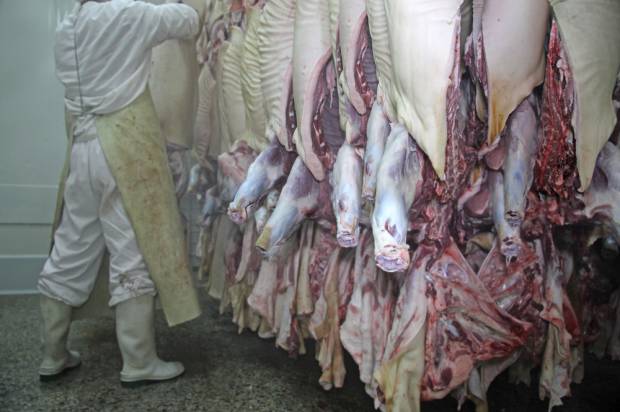“I don’t think it’s wholesome or safe to consume”: Why a former meat inspector is blowing the whistle
Wednesday, Feb 4, 2015 11:00 AM MST
Joe Ferguson tells Salon why the USDA needs to abandon its flawed attempt at reform
(Credit: branislavpundar/Shutterstock)
Joe Ferguson knows better than most where Americans’ meat comes from. Before retiring last year, he spent 23 years as a USDA inspector working in beef, turkey and pork plants. It was at the latter that he first encountered the USDA’s proposed new model for pork inspections — and what he experienced there led him, last week, to publicly condemn what he says is a dangerously flawed program.
Working with the Government Accountability Project, Ferguson joined three other, anonymous inspectors in warning consumers about the Hazard Analysis and Critical Control Point-based Inspection Models Project — better known as HIMP — a USDA-led attempt at reform that increases line speeds while simultaneously reducing the number of USDA inspectors monitoring them.
“I am not a disgruntled former employee, nor do I have a vendetta against Hormel [the company targeted by GAP’s Change.org petition],” Ferguson said. “It’s just that I’m concerned with the way that meat inspection is going.”
In 1998, the USDA adopted the Hazard Analysis and Critical Control Point — or HAACP — model of meat inspection, the first major overhaul since the days of Upton Sinclair’s “The Jungle.” The idea was to switch the emphasis from the physical monitoring of carcasses to microbial testing, in order to better identify pathogens like E. Coli and salmonella. It was an important focus, but one that critics say consequently allows meat with defects and visible signs of contamination (think: lesions, cysts and yes, feces) to go undetected. At the same time, the program shifted the responsibility for carrying out those test from USDA inspectors to the meat plant operators themselves, a move that some argue give the industry way too much power.
Now, they’re doing it again. HIMP, Ferguson argues, intensifies those same problems: the USDA is continuing to give up control over meat inspections, while sped up lines are making it harder than ever to detect flaws. “I was skeptical initially,” he told Salon of the program’s implementation, “but then as time progressed, it was apparent that this wasn’t what they told us it was going to be.”
Lindsay Abrams is a staff writer at Salon, reporting on all things sustainable. Follow her on Twitter @readingirl, email labrams@salon.com.


This is a captive agency. It means that the USDA is so influenced by those they are supposed to regulate that they can not regulate them and instead continue to capitulate to them. In essence, it means “regulate” turns into “capitulate”.
This is a real problem in our country and one of the reasons the U.S. government can not be trusted. They are way too influenced by those they are are supposed to regulate.